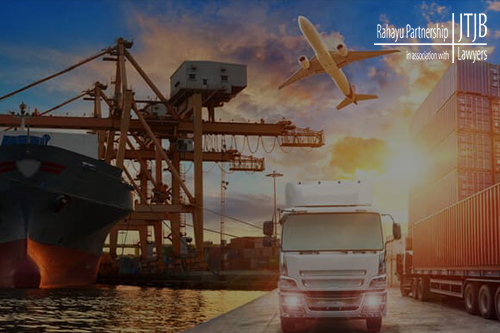In the last article, we explored the law that regulates a Freight Forwarder’s responsibilities (FF) according to different industries (air, sea, road, rail). This article will focus on whether FFs share the same obligation with the Shipper and the Carrier.
Lastly, we will also touch on whether a FF be subjected to a criminal or administrative offence (if there is any violation of laws).
Freight Forwarder = Carrier/ Shipper?
Based on the case Jones v General Express [1920] 4 LI.L. Rep 127, the Court held that:
‘A forwarding agent is not a carrier; he does not obtain the possession of the goods; he does not undertake the delivery of them at the other end.
He only acts as an agent for the owner of the goods to make arrangements with the people who do carry.’
In short, FF is merely a facilitator and a middle person who will make arrangement with the Carrier and/or the Shipper with regards to transportation of hazardous cargo. However, the transaction process does not end at FF’s stage. Hence, the legal status of a FF is merely an agent.
Malaysian Context
Similar facts can also be seen in the Malaysian case of Etonic Garment Manufacturing Sdn Bhd v Kunn-G Freight Systems (M) Sdn Bhd (Malaysian Airline System Bhd, third party) [2011] 3 MLJ 98.
In Etonic Garment’s case, the Defendant, a FF, was sued for failure to deliver goods within a reasonable period of time. The Court held that the Defendant, as a FF has complied with its contractual obligations by delivering the goods from the Plaintiff Shipper’s factory to MASkargo and arranging for the transport of Plaintiff Shipper’s goods through MAS (Carrier). As the Defendant, a FF, did not undertook to deliver the goods to Dublin itself nor ensure that MAS as Carrier did so, the Defendant was not responsible for failure to deliver the goods in a timely manner, nor were they responsible for any damage, loss or loss of profit suffered by the Plaintiff Shipper.
Therefore, it is established that FF is not a carrier and its responsibilities are the moment they collect the goods from the Shipper/Manufacturer premises and later deliver the goods to the Carrier, to be delivered to Consignee.
Another case worth mentioning is Ing Hua Fu Marine Line Sdn Bhd v Vitachem (M) Sdn Bhd & Anor [2013] 9 MLJ 825.
In this case, the cargo contains agrochemical products which is known in the shipping industry as dangerous cargo. The cargo exploded on board the Vessel and the Vessel sank. Freight Forwarder was sued as the 2nd Defendant for failing to notify that the cargo was of dangerous nature.
The Court held that under the tort of negligence, the FF is exempt from liability and all damages suffered by the Carrier is borne by the Shipper. However, since the FF provided an independent warranty to the Carrier that the goods were safe for shipment, it is liable for breach of warranty
Key takeaways
- Generally, FF is not a Carrier nor a Shipper if its role is merely to make arrangements for the transport of shipments as per Etonic Garment’s case;
- However, based on the Ing Hua Fu Marine’s case, FF may be liable under contract if it provides a warranty that the shipment is safe and not dangerous. Therefore, FF still should ascertain the nature of the goods upon arranging for transport.
- In tort, legal liability is determined by whether the FF undertakes to deliver the goods themselves, or undertakes to ensure that the goods will arrive promptly by the Carrier.
- FF is bound by its contractual obligations between parties and may be found liable for breach of contract.
*This article is only for informative purposes. If you have any specific freight forwarder or shipping relevant matters, consult a professional to understand better.
Rahayu Partnership provides a wide range of services that cover internationally and locally. Please do not hesitate to contact us for a consultation.
By Rahayu Partnership, Malaysia
Law Firm Website: www.rahayupartnership.com



